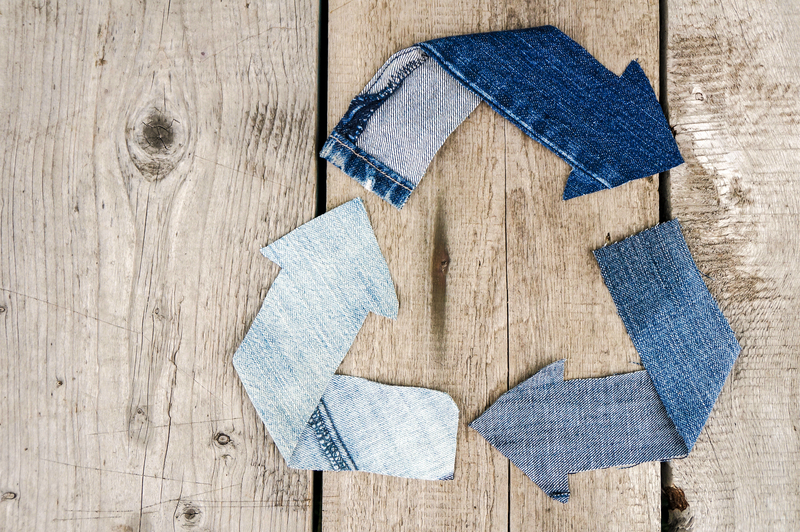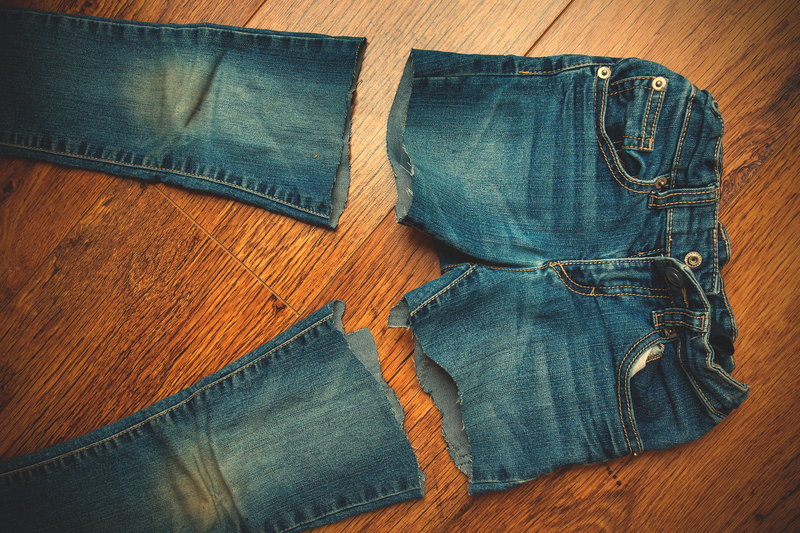Environmentally Safe Options for Discarding Chargers: A Comprehensive Guide
Chargers have become a ubiquitous part of modern life. Whether for your phone, laptop, smart watch, or tablet, most of us accumulate multiple chargers over time. However, with frequent upgrades to devices and evolving technologies, old and unusable chargers quickly pile up in our drawers and cabinets. Properly discarding these electronic accessories is not as straightforward as tossing them in the trash. Disposing of chargers irresponsibly can harm the environment, pollute our water sources, and even threaten human health. So, what are the environmentally safe options for discarding chargers? This article explores the subject in-depth, offering you actionable, eco-friendly solutions.

Why Discarding Chargers Responsibly Matters
Before exploring the options, it's vital to understand why environmentally responsible disposal of chargers is important.
- Chargers contain hazardous materials such as lead, copper, and other heavy metals that can leach into the soil and water if they end up in a landfill.
- Electronic waste (e-waste) is rapidly growing worldwide, with chargers representing a significant chunk of small e-waste.
- E-waste recycling helps recover valuable resources, preventing further mining and reducing greenhouse gas emissions.
- Improper disposal can be illegal in many regions, with strict e-waste guidelines in place.
As you can see, the way you discard your old or broken charger truly matters--not just for the environment but also for compliance and resource management.
Common Mistakes When Discarding Old Chargers
Many people, simply unaware or in a hurry, make the following mistakes with charger disposal:
- Throwing chargers in household trash, which leads to landfill pollution.
- Leaving them in drawers or cabinets indefinitely, which delays proper disposal and recycling.
- Giving chargers to recyclers not certified to handle e-waste safely.
To minimize your environmental impact, it's essential to know the right ways to discard chargers.
Top Environmentally Safe Options for Discarding Chargers
Environmentally safe charger disposal involves more than a one-size-fits-all solution. Let's look at the most recommended, eco-conscious choices.
1. Utilize Local E-Waste Recycling Programs
Many cities and municipalities now run e-waste collection and recycling programs.
- Contact your local waste management authority or visit their website to check for scheduled e-waste collection days or designated drop-off points for chargers and other electronics.
- Municipal recycling centers typically have the equipment and expertise to process chargers in an eco-friendly manner, recovering useful metals and plastics.
- *Never place chargers directly in household recycling bins unless explicitly allowed, since they may damage recycling machines or contaminate other recyclables.*
2. Use Manufacturer Take-Back and Mail-Back Programs
Leading electronics brands often offer take-back or mail-back programs that accept old chargers and other accessories.
- Apple, Dell, HP, and other top brands provide recycling initiatives for both their own chargers and, in many cases, other brands too.
- Some programs operate online: you can request a pre-paid shipping label, pack your old charger, and mail it back for ethical recycling.
- Visit your device manufacturer's official website and search for "recycling" or "take-back" to learn more.
3. Explore Electronic Retailer Recycling Initiatives
Large electronics retailers often offer in-store recycling bins specifically for small electronics like chargers and cables.
- Best Buy and Staples in the US, as well as Curry's (UK) and Officeworks (Australia), make it convenient to drop off chargers anytime you shop.
- These chains partner with certified recyclers to ensure your old charger is dismantled, sorted, and recycled responsibly.
4. Donate Working Chargers to Nonprofits or Community Groups
If your charger is still functional, it might serve someone else long before it reaches the recycling stage.
- Local community centers, shelters, charities, and libraries sometimes accept electronics, including spare chargers.
- Schools or organizations running device donation programs may need compatible chargers for their inventory.
- Check with donation centers or use online platforms (Freecycle, local Facebook groups, etc.) to rehome chargers responsibly.
5. Consider E-Waste Collection Events
Periodically, cities, schools, or environmental organizations host e-waste collection drives or "clean-up days".
- These events are great opportunities to safely discard chargers and other small electronics in bulk.
- They ensure that devices are handed over to vetted recyclers, maximizing both environmental protection and recycling efficiency.
- Stay updated by following your municipality's website or social media channels for upcoming events.
6. Use Certified E-Waste Recyclers
When using independent recycling services, always choose facilities certified by organizations such as R2 (Responsible Recycling) or e-Stewards.
- Certified recyclers follow strict environmental and health protocols, ensuring every charger is processed in the least harmful way.
- You may be able to find local certified recyclers through online directories.
Understanding How Charger Recycling Works
Are you curious about what actually happens once your charger enters the recycling stream? Here is a brief overview:
- Chargers are first sorted by type and material composition (plastic, copper, aluminum, etc.).
- They are safely dismantled, separating wires from electronic chips and insulation.
- Valuable metals like copper are extracted and sent to refineries or manufacturers for reuse.
- Plastic casings are processed for recycling into new products.
- Hazardous substances are handled according to regulatory standards to prevent pollution and health risks.
Through this process, you are ensuring that old chargers are transformed into new resources instead of polluting the earth.
Innovative and Emerging Solutions
The landscape of charger disposal is evolving, with new solutions appearing each year.
Manufacturer Eco-Design and Modular Chargers
- More tech companies now create chargers with eco-friendly materials and easy-to-disassemble designs, making future recycling even safer and more efficient.
Charger Repurposing and Creative Reuse
- Old chargers can sometimes be adapted for DIY projects--think battery packs for education, art installations, or powering small gadgets--delaying their journey to the recycling plant.
Buy-Back and Trade-In Programs
- Some retailers are piloting buy-back initiatives where you return your charger in exchange for store credit, nudging consumers toward responsible disposal.
Choosing the Best Environmentally Friendly Option: A Checklist
Before discarding your charger, ask yourself these questions:
- Is my charger still working? Could someone else use it?
- Is this the only charger I have? It's better to keep at least one spare for emergencies!
- Is there a local or brand-supported recycling program available to me?
- Can my charger be upgraded or refurbished?
Tips to Reduce the Need for Charger Disposal
Avoiding unnecessary charger waste is as important as ethical disposal.
- Buy only what you need: Resist the temptation to buy the latest charger if your current one is in perfect working condition.
- Choose universal chargers: Opt for models compatible with multiple devices to reduce redundancy.
- Take care of your chargers: Avoid wrapping cords too tightly, exposing them to moisture, or pulling from the cord when unplugging.
- Support brands with take-back policies: Purchase chargers from companies known for eco-friendly e-waste initiatives.
The Environmental Impact of Improper Charger Disposal
Let's take a moment to examine the broader consequences:
- Chargers sent to landfills take hundreds of years to decompose, leaching toxic substances all the while.
- Burning or improper dismantling (often in developing countries) releases hazardous fumes, damaging air quality and endangering workers.
- Unrecycled electronics contribute to resource depletion--recycling conserves metals, plastics, and energy.
By choosing environmentally safe charger disposal, you're making a direct and positive impact on the planet's future.

Frequently Asked Questions About Environmentally Safe Charger Disposal
Can I Recycle Chargers in My Regular Recycling Bin?
No. Chargers are considered e-waste and require specialized recycling. Placing them in standard bins risks contamination and machinery damage.
What If My Area Doesn't Offer E-Waste Recycling?
Try brand take-back programs or search for certified recyclers that offer mail-back services. Some non-profits and electronics stores accept drop-offs even if your city doesn't.
Are There Laws Regulating Charger Disposal?
Many regions have e-waste regulations. In some countries or states, it is illegal to dispose of electronics (including chargers) in landfills. Always check local guidelines.
Conclusion: A Greener Future Starts With Responsible Charger Disposal
Discarding chargers in an eco-friendly manner may take a little more effort than tossing them in the trash, but it's an investment in a safer, cleaner planet. By recycling chargers responsibly, donating when possible, and choosing sustainable consumption habits, you are actively reducing e-waste pollution and conserving valuable resources. Every charger counts--make sure yours leaves a positive impact!
Remember: Environmentally safe charger disposal is not just a personal choice--it's a commitment to the well-being of your community and the Earth.